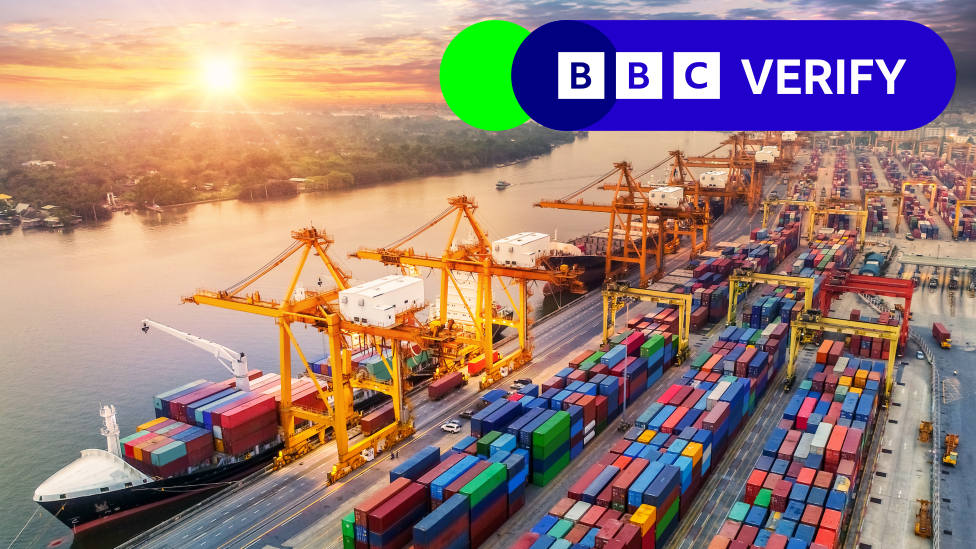Brexit: No deal threat focusing minds, says Hammond
- Published
- comments
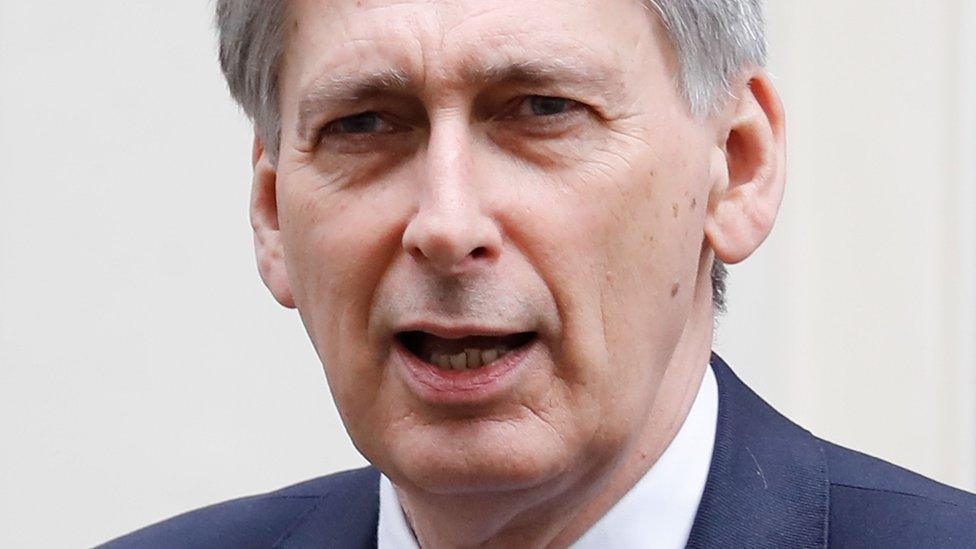
The threat of a no-deal Brexit is "focusing minds" and encouraging compromise, the chancellor has said.
Philip Hammond said the government was "determined to get a deal" before leaving the EU on 29 March but a "very bad" no deal outcome remained possible.
The government said talks on Thursday were "productive" and would "continue urgently at a technical level".
Jeremy Corbyn, who met EU negotiator Michel Barnier earlier, again accused the PM of "running down the clock".
Theresa May met the EU's Jean-Claude Juncker to discuss changes to the existing deal to win MPs' support on Wednesday.
The prime minister said progress had been made on Wednesday over legally binding guarantees about the Irish backstop - the insurance policy to stop a hard border returning to the island of Ireland - but "time is of the essence".
However, Mr Juncker said he was "not very optimistic" about securing a deal.
Brexit Secretary Stephen Barclay and Attorney General Geoffrey Cox were in Brussels on Thursday for talks with Mr Barnier.
They focused on "guarantees relating to the backstop that underline once again its temporary nature and give appropriate legal assurance to both sides, as well as alternative arrangements and the political declaration (the document setting out future UK-EU relations)", a government statement said.
Mr Barclay and Mr Cox will meet Mr Barnier again early next week, it added.
Labour leader Jeremy Corbyn, his Brexit spokesman Sir Keir Starmer and shadow attorney general Baroness Chakrabarti were also in Brussels to discuss their proposals, which include a permanent customs union and a close relationship with the single market.
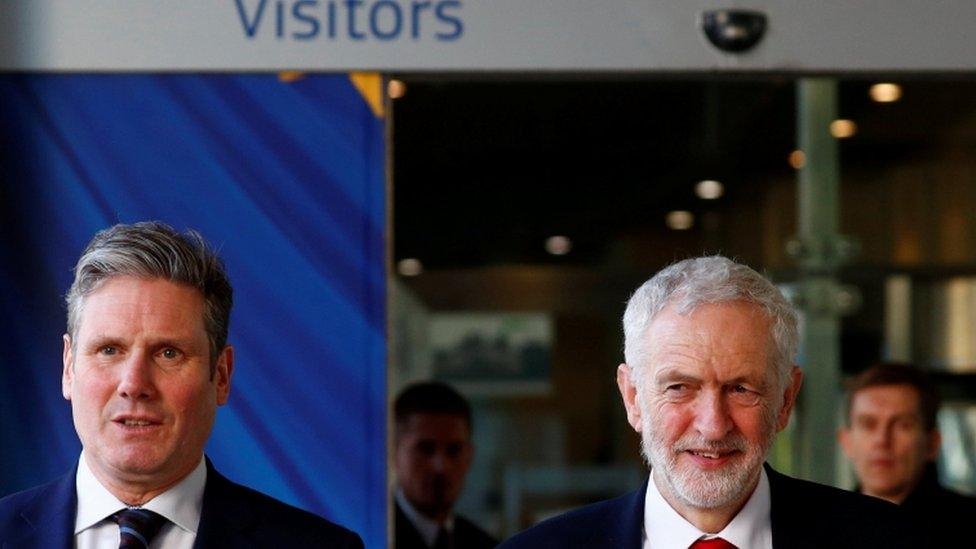
Speaking after a meeting with Mr Barnier, Mr Corbyn urged Theresa May to "take the threat of no deal off the table", adding that the EU was "very worried about the consequences of it".
He did not rule out further meetings with Theresa May to discuss Labour's Brexit plans, which he says could get the backing of the House of Commons, but he added: "It is very clear that this prime minister, by refusing to change her red lines, is simply running down the clock".
Backstop problems
The backstop has become the main sticking point of the prime minister's proposals - with critics fearing the policy would leave the UK tied to a customs union indefinitely - and it played a large part in her plan being voted down by a historic margin in January.
Earlier this month, Parliament voted for Mrs May to seek "alternative arrangements" to replace the backstop but the EU has consistently said it will not re-open the withdrawal agreement - the "divorce" deal where it features.
Confused by Brexit jargon? Reality Check unpacks the basics.
Speaking on BBC Radio 4's Today programme, Mr Hammond said government policy on Brexit was "very clear".
"We are determined to get a deal. We recognise that a no-deal Brexit would be a very bad outcome for the UK and we are doing everything we can to avoid that," he said.
"There is always a possibility of no deal as an outcome and that is why the government is carrying out appropriate contingency planning."
However, the chancellor said that the risk was helping push some people towards agreeing with the government's plan.
"I fully recognise that it is very uncomfortable that we are as close to the wire as we are but I am afraid that is just a feature of this kind of negotiation. We are making progress," he added.
Former Tory MP and new member of The Independent Group, Sarah Wollaston, predicted a third of the cabinet would resign if there was a no-deal Brexit.
Mr Hammond would not reveal if he was among that number but said: "My job is to avoid [a no-deal Brexit] and to make sure the government is focused entirely on avoiding that outcome."
Next steps
Speaking from the European Commission on Thursday, Mr Juncker said he could not rule out a no-deal Brexit, which would have "terrible economic and social consequences both in Britain and the EU".
He added: "The worst can be avoided but I'm not very optimistic when it comes to this issue."
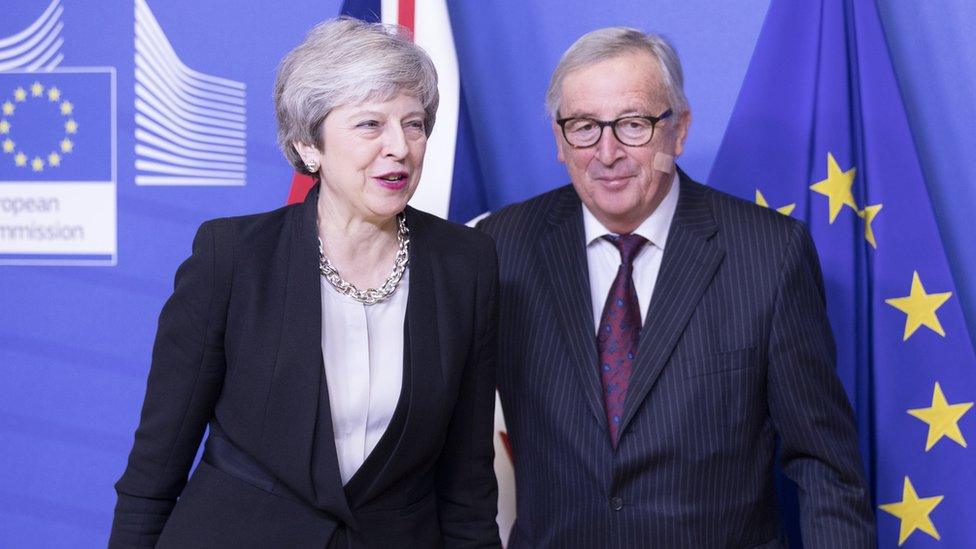
Theresa May and Jean-Claude Juncker met in Brussels on Wednesday
On Sunday, Mrs May will be attending a two-day EU-League of Arab States summit in the Egyptian Red Sea resort of Sharm el-Sheikh with about 20 EU leaders, including German Chancellor Angela Merkel and Irish Prime Minister Leo Varadkar.
She is expected to hold a series of one-to-one meetings as she continues to push for her deal.
- Published19 February 2019
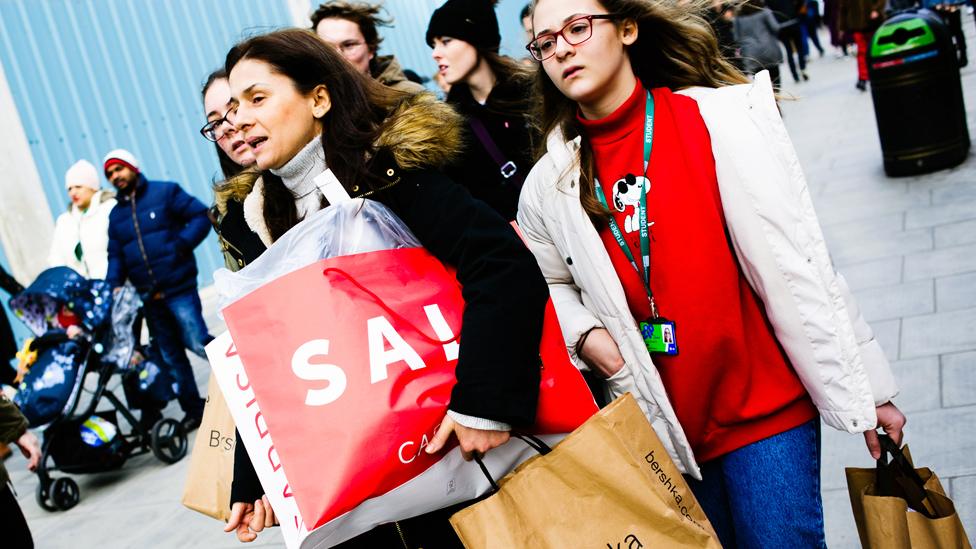
- Published11 October 2019

- Published26 January 2024
